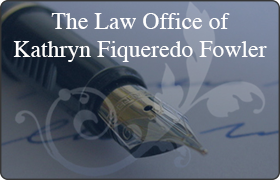Coupland Divorce & Family Law Lawyer, Texas
Sponsored Law Firm
-
 x
x

Click For More Info:
-
Law Office of Kathryn Fiqueredo Fowler
406 W University Ave, Georgetown, TX 78626» view mapDivorce & Family, Accident & Injury, Car Accident Integrity, Advocacy, and Understanding
At the Law Office of Kathryn Figueredo Fowler, our clients have come first for over 20 years. Every client is treated with courtesy.
800-346-2170
Ernest Jim Alderete
Education, Employment, Family Law, Criminal
Status: In Good Standing Licensed: 23 Years
Mark James Schroeder
Credit & Debt, Personal Injury, Family Law, Litigation
Status: In Good Standing Licensed: 22 Years
Bryan W. Mcdaniel
Wills, Family Law, Bankruptcy, Bankruptcy & Debt
Status: In Good Standing Licensed: 30 Years
Christopher David Osborn
Construction, Employee Rights, Family Law, Credit & Debt
Status: In Good Standing
Amanda Lee Carter
Juvenile Law, Social Security, Family Law, Personal Injury
Status: In Good Standing Licensed: 13 Years
Amy A. Mclean
Commercial Real Estate, Litigation, Wills, Family Law
Status: In Good Standing Licensed: 25 Years
Leland R. Enochs
Commercial Real Estate, Family Law, Elder Law, Business & Trade
Status: In Good Standing Licensed: 48 Years
James Patrick Quinn
Commercial Real Estate, Wills, Family Law, Business & Trade
Status: In Good Standing Licensed: 47 Years
Randall J. Pick
Wills, Estate, Family Law, Divorce & Family Law
Status: In Good Standing Licensed: 40 Years

 Kathryn Fowler Georgetown, TX
Kathryn Fowler Georgetown, TX Facebook
Facebook Contact Us
Contact Us
